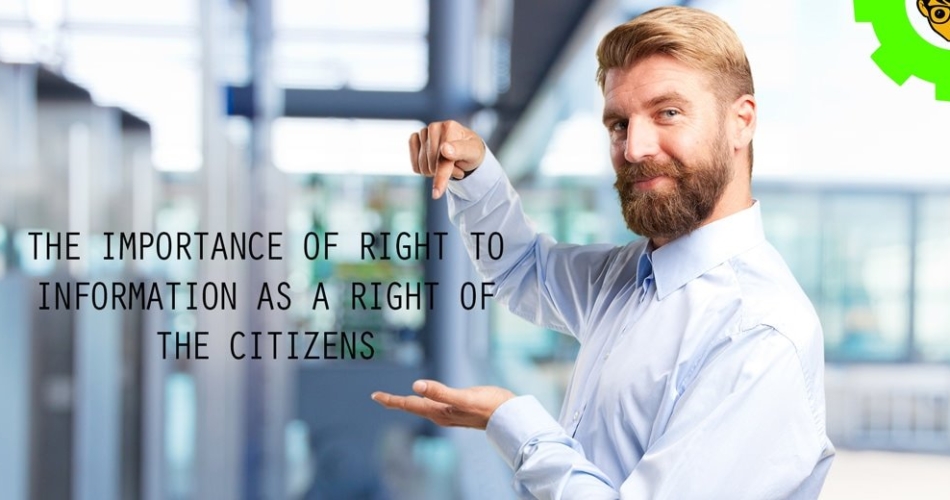At the end of 18th century, this right was fortified by the United States freedom fight and the Paris revolution and in the middle of 20th century, it was comprehensively enacted by the United Nations’ universal declaration of human rights. (Un.org, 2018) According to the section 3 of the constitution of Sri Lanka, the people possess the sole right of sovereignty. It consists of the three major powers of the state, executive, legislative and judiciary along with the right of electing representatives and fundamental rights. Moreover, according to the section 4 (Srilankalaw.lk, n.d.), people’s sovereignty is functioned through the representative democracy. Therefore the cabinet led by the president, the parliament and the court function as the institutions that operate the sovereignty of the people. The citizens should have a right to observe if these institutions function properly. Therefore the important information about all institutions to which can be accessed commonly should flow to the citizens unedited and free of obstacles. Such information is very much essential for the public to elect the right representatives at a general election. This observing process of the public is a mandatory requisite for handling the checks and balances mechanism which collides with “Separation of powers” theory.
One of the important fundamental rights in chapter 3 (Srilankalaw.lk, n.d.) of the constitution of Sri Lanka is the right of speech and idea expressing that comes under the section 14(1)(a) (Srilankalaw.lk, n.d.). For any person to productively speech, he/she should be having accurate, true and updated information. In that context, the right of accessing to information should automatically be ensured to stabilize the right of speech. According to the case law; Vimal Fernando V. Sri Lanka Broadcasting Corporation the right to information is considered to be a derivative fundamental right of citizens in Sri Lanka.
When we compress the above arguments together and refer to a conclusion ultimately, it is affirmatively perceivable by any regular person’s knowledge that the legislators have an obvious responsibility to take necessary steps to legislate the right to information. The parliament which is known as the mirror of the public representation should make this responsibility; a major priority so as to make prompt arrangements to get the bill of rights to information passed in the parliament. And we; the citizens, let us not expect it as yet another election promise.
References
- Un.org. (2018). Universal Declaration of Human Rights. [online] Available at: http://www.un.org/en/universal-declaration-human-rights [Accessed 15 Jan. 2017].
- Srilankalaw.lk. (n.d.). Constitution Of The Democratic Socialist Republic Of Sri Lanka. [online] Available at: http://www.srilankalaw.lk/constitution-of-the-democratic-socialist-republic-of-sri-lanka.html [Accessed 15 Jan. 2017].

